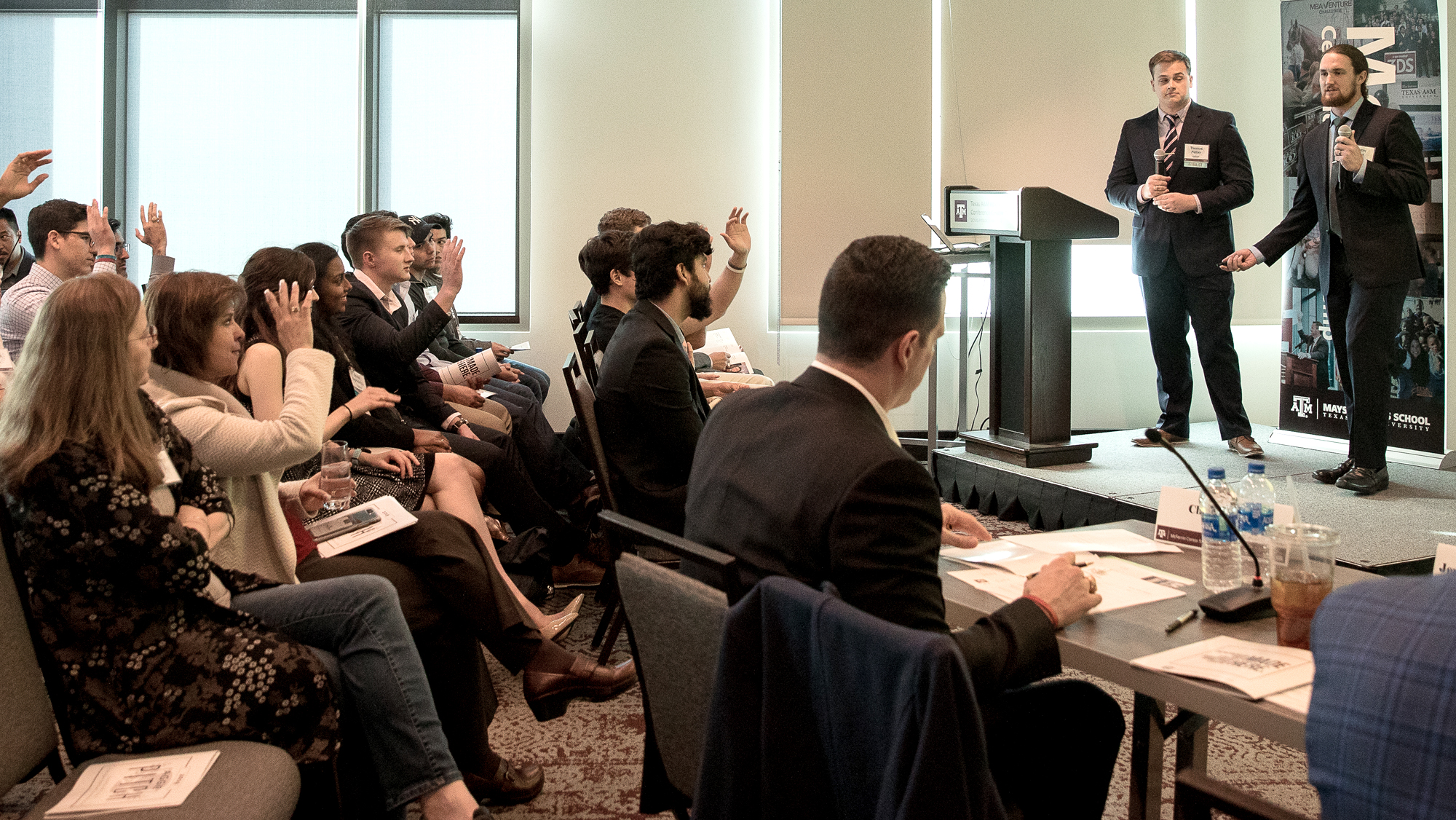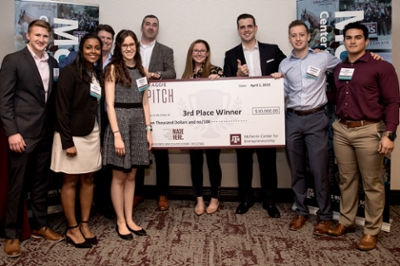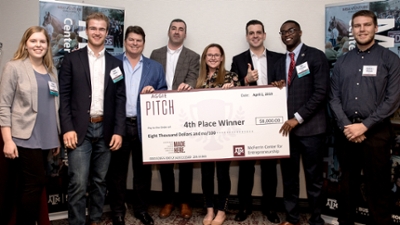
Engineering students put their pitching skills to the test during Aggie PITCH 2019, except they weren’t playing ball.
The McFerrin Center for Entrepreneurship hosted its second annual Aggie PITCH this year. Aggie PITCH is open to all currently enrolled students and seeks to identify the best student business pitch at Texas A&M. Ten student teams were selected as finalists to compete for $50,000 in prize money. The finalist team members represented six colleges and over 15 majors. Each group was allotted 10 minutes to give a pitch on their business and field questions from a panel of expert judges.
Two engineering teams placed in the top five. Team Polylabs, made up of biomedical engineering students, won third place for their novel polybubble technology, which serves as a protective layer surrounding life-saving vaccines exposed to extreme temperatures during transport to developing countries, cutting the costs associated with constant refrigeration.

Junior Jacob Good said the team has been working to develop the idea under assistant professor Dr. Corey Bishop. Now that the team had a successful proof-of-concept, pitching their idea and raising awareness was the next step.
“Competing in Aggie PITCH helped us understand how to bridge the knowledge gap between engineers such as ourselves, and people in business,” Good said. “We learned how to get away from the science and connect with the judges so they would believe in our idea the same way we do.”
Biomedical engineering graduate student Shree Arun Kumar said the team wanted to participate in the competition to fine tune their business model and seek funding to commercialize the product.
“Aggie PITCH encouraged us to critically think about initial investment and revenue strategies that will lead to the successful deployment of our polybubbles,” Kumar said. “Winning third place in this competition provided us with financial resources to kickstart our commercialization effort.”

Team Lazarus, which included mechanical engineering senior Elise Hackney, chemical engineering senior Ben Omonira and biomedical engineering senior Seth Reine, placed fourth in the competition. The team’s project works to develop a form of ammunition that would provide neutralization power of a lethal round while preserving life through hemostatic material.
Omonira said Aggie PITCH exceeded the team’s expectations for helping them hone their pitching skills and gain more feedback.
“Aggie PITCH shed light on the things we can do to answer questions raised in the minds of an investor,” Omonira said.“Most importantly, we were given feedback that set us up for an opportunity to show real investment potential moving forward and we had a great opportunity to show off our team’s hard work.”
Other engineering students were in the top 10 finalists for the challenge. Alex Ramponi, computer engineering senior, worked with two veterinary medicine students on VetCHIP, a way to track a pet’s complete medical history for easier access by veterinarians when it matters most. He said he learned about the project from an online post.
“When I heard their idea, I thought it was really cool since I personally have two dogs, one of which has a handful of medical issues,” Ramponi said. “When they explained the idea to me and how it could really change how the vet industry works, I was fascinated since I could easily see it not only helping my dogs but other dogs and vets nationwide.”
Ramponi said the Aggie PITCH process and the VetCHIP project helped him expand his knowledge beyond software and coding to include business skills.
Other finalists included electrical and computer engineering student graduate student Alfredo Costilla-Reyes, and Team Interna, which included industrial engineering seniors Christian Aycinena and Francisco Donoso, interdisciplinary engineering senior Luke Oaks and general engineering sophomore Nathan Reddy.